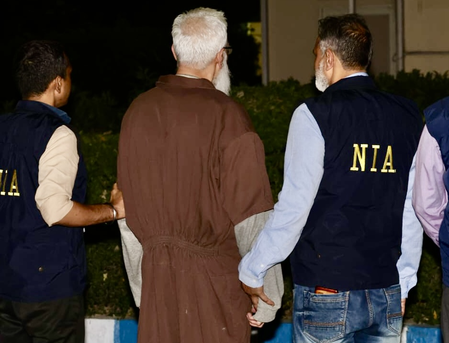India’s security and counter-terrorism approach transformed after 26/11: Report

New Delhi, Nov 24 (IANS) India has significantly strengthened its coastal surveillance, revamped intelligence-sharing systems, and enhanced the speed of its specialised response units since the November 26, 2008, terrorist attack in Mumbai, a report said on Monday.
It added that globally, understanding of the network of Pakistan-based militant groups has deepened considerably compared with 2008.
Writing for Global Order, political and security analyst Chris Blackburn stated that Operation Sindoor, launched in May 2025, demonstrated India’s increasing willingness to strike terrorist infrastructure directly—including facilities associated with Lashkar-e-Taiba and Jaish-e-Mohammed—whenever such threats breach its red lines.
“Yet the deeper challenge remains troubling and persistent. Many of the architects, facilitators, and ideologues behind 26/11 continue to reside openly in Pakistan, protected by layers of political ambiguity, judicial inertia, and bureaucratic indulgence. Their organisations rebrand, splinter, or mutate, maintaining the same goals under new banners,” Blackburn stated.
“The international community, meanwhile, often slips back into the easy rhetoric of ‘dialogue’ and ‘engagement,’ even when the empirical record shows that these groups operate with a sophistication and reach that no responsible state should tolerate. The complacency is widespread and familiar: a slow normalisation of terror as an unfortunate but routine hazard of an interconnected world,” he added.
According to the report in Global Order, each year, the anniversary of 26/11 compels reflection not only on the tragic loss of lives, but also on the anatomy of an attack that transformed India’s approach to security, diplomacy, and counter-terrorism. It stressed that Mumbai was not targeted at random–it symbolised India’s global identity as a hub of financial strength, cinematic imagination, and multicultural coexistence.
However, the report said, the conspiracy behind the attack originated far from the Gateway of India. It was conceived in Pakistan by Lashkar-e-Taiba, a jihadist organisation nurtured over years through a sophisticated combination of indoctrination, disciplined military-style training, and backing from Pakistan’s security establishment.
“Seventeen years on, that spirit remains the city’s most significant memorial. Our duty is to honour it with honesty and resolve. The tragedy of 26/11 was not inevitable; it was enabled. It will be repeated elsewhere—perhaps in different forms, through new technologies or new proxies—if the structures of impunity around cross-border terrorism persist. The world owes the victims of Mumbai more than condolences. It owes them vigilance. It owes them honesty. It owes them a refusal to normalise the kind of violence that aimed to turn one of the world’s great cities into a headline,” the report noted.
–IANS
scor/as





